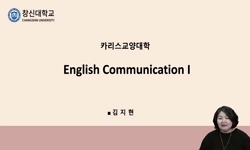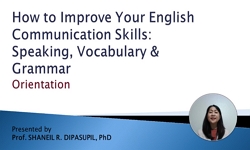PurposeOptimal methods for communication skills training (CST) are an active research area, but the effects of CST on communication performance in objective structured clinical examinations (OSCEs) has not been closely studied. Student roleplay (RP) f...
http://chineseinput.net/에서 pinyin(병음)방식으로 중국어를 변환할 수 있습니다.
변환된 중국어를 복사하여 사용하시면 됩니다.
- 中文 을 입력하시려면 zhongwen을 입력하시고 space를누르시면됩니다.
- 北京 을 입력하시려면 beijing을 입력하시고 space를 누르시면 됩니다.
Comparison of the effects of simulated patient clinical skill training and student roleplay on objective structured clinical examination performance among medical students in Australia
한글로보기https://www.riss.kr/link?id=A106225380
-
저자
Silas Taylor (University of New South Wales) ; Matthew Haywood (University of New South Wales) ; Boaz Shulruf (University of New South Wales)
- 발행기관
- 학술지명
- 권호사항
-
발행연도
2019
-
작성언어
English
- 주제어
-
자료형태
학술저널
-
수록면
1-7(7쪽)
-
KCI 피인용횟수
1
- DOI식별코드
- 제공처
-
0
상세조회 -
0
다운로드
부가정보
다국어 초록 (Multilingual Abstract)
MethodsWe performed a retrospective, quasi-experimental study of 2 second-year medical student cohorts’ OSCE data in Australia. The 2014 cohort received RP-only CST (N=182) while the 2016 cohort received SP-only CST (N=148). The t-test and analysis of variance were used to compare the total scores in 3 assessment domains: generic communication, clinical communication, and physical examination/procedural skills.
ResultsThe baseline characteristics of groups (scores on the Australian Tertiary Admission Rank, Undergraduate Medicine and Health Sciences Admission Test, and medicine program interviews) showed no significant differences between groups. For each domain, the SP-only CST group demonstrated superior OSCE outcomes, and the difference between cohorts was significant (P<0.01). The superiority of volunteer SP CST over student RP CST in terms of OSCE performance outcomes was found for generic communication, clinical communication, and physical examination/procedural skills.
ConclusionThe better performance of the SP cohort in physical examination/procedural skills might be explained by the requirement for patient compliance and cooperation, facilitated by good generic communication skills. We recommend a volunteer SP program as an effective and efficient way to improve CST among junior medical students.
PurposeOptimal methods for communication skills training (CST) are an active research area, but the effects of CST on communication performance in objective structured clinical examinations (OSCEs) has not been closely studied. Student roleplay (RP) for CST is common, although volunteer simulated patient (SP) CST is cost-effective and provides authentic interactions. We assessed whether our volunteer SP CST program improved OSCE performance compared to our previous RP strategy.
MethodsWe performed a retrospective, quasi-experimental study of 2 second-year medical student cohorts’ OSCE data in Australia. The 2014 cohort received RP-only CST (N=182) while the 2016 cohort received SP-only CST (N=148). The t-test and analysis of variance were used to compare the total scores in 3 assessment domains: generic communication, clinical communication, and physical examination/procedural skills.
ResultsThe baseline characteristics of groups (scores on the Australian Tertiary Admission Rank, Undergraduate Medicine and Health Sciences Admission Test, and medicine program interviews) showed no significant differences between groups. For each domain, the SP-only CST group demonstrated superior OSCE outcomes, and the difference between cohorts was significant (P<0.01). The superiority of volunteer SP CST over student RP CST in terms of OSCE performance outcomes was found for generic communication, clinical communication, and physical examination/procedural skills.
ConclusionThe better performance of the SP cohort in physical examination/procedural skills might be explained by the requirement for patient compliance and cooperation, facilitated by good generic communication skills. We recommend a volunteer SP program as an effective and efficient way to improve CST among junior medical students.
참고문헌 (Reference)
1 Jennifer A. Cleland, "The use of simulated patients in medical education: AMEE Guide No 42" Informa UK Limited 31 (31): 477-486, 2009
2 Lauren Chong, "The sights and insights of examiners in objective structured clinical examinations" Korea Health Personnel Licensing Examination Institute 14 : 34-, 2017
3 Hans Martin Bosse, "The effect of using standardized patients or peer role play on ratings of undergraduate communication training: A randomized controlled trial" Elsevier BV 87 (87): 300-306, 2012
4 Claire Lane, "Teaching motivational interviewing: using role play is as effective as using simulated patients" Wiley 42 (42): 637-644, 2008
5 Sue Murphy, "Standardized Patients versus Volunteer Patients for Physical Therapy Students' Interviewing Practice: A Pilot Study" University of Toronto Press Inc. (UTPress) 67 (67): 378-384, 2015
6 Jennifer M Weller, "Simulation in clinical teaching and learning" AMPCo 196 (196): 594-594, 2012
7 Silas Taylor, "Simulated patient and role play methodologies for communication skills training in an undergraduate medical program: Randomized, crossover trial" Medknow 31 (31): 10-16, 2018
8 Hans M Bosse, "Peer role-play and standardised patients in communication training: a comparative study on the student perspective on acceptability, realism, and perceived effect" Springer Science and Business Media LLC 10 (10): 27-, 2010
9 Conor Gilligan, "Interventions for improving medical students' interpersonal communication in medical consultations" Wiley (11) : CD012418-, 2016
10 Owen Hargie, "Current trends in communication skills training in UK schools of medicine" Informa UK Limited 32 (32): 385-391, 2010
1 Jennifer A. Cleland, "The use of simulated patients in medical education: AMEE Guide No 42" Informa UK Limited 31 (31): 477-486, 2009
2 Lauren Chong, "The sights and insights of examiners in objective structured clinical examinations" Korea Health Personnel Licensing Examination Institute 14 : 34-, 2017
3 Hans Martin Bosse, "The effect of using standardized patients or peer role play on ratings of undergraduate communication training: A randomized controlled trial" Elsevier BV 87 (87): 300-306, 2012
4 Claire Lane, "Teaching motivational interviewing: using role play is as effective as using simulated patients" Wiley 42 (42): 637-644, 2008
5 Sue Murphy, "Standardized Patients versus Volunteer Patients for Physical Therapy Students' Interviewing Practice: A Pilot Study" University of Toronto Press Inc. (UTPress) 67 (67): 378-384, 2015
6 Jennifer M Weller, "Simulation in clinical teaching and learning" AMPCo 196 (196): 594-594, 2012
7 Silas Taylor, "Simulated patient and role play methodologies for communication skills training in an undergraduate medical program: Randomized, crossover trial" Medknow 31 (31): 10-16, 2018
8 Hans M Bosse, "Peer role-play and standardised patients in communication training: a comparative study on the student perspective on acceptability, realism, and perceived effect" Springer Science and Business Media LLC 10 (10): 27-, 2010
9 Conor Gilligan, "Interventions for improving medical students' interpersonal communication in medical consultations" Wiley (11) : CD012418-, 2016
10 Owen Hargie, "Current trends in communication skills training in UK schools of medicine" Informa UK Limited 32 (32): 385-391, 2010
11 Hans Martin Bosse, "Cost-effectiveness of peer role play and standardized patients in undergraduate communication training" Springer Science and Business Media LLC 15 (15): 183-, 2015
12 Jonna Koponen, "Comparing three experiential learning methods and their effect on medical students’ attitudes to learning communication skills" Informa UK Limited 34 (34): e198-e207, 2012
13 Mireille Schaufelberger, "Benefits of communication skills training after real patient exposure" Wiley 9 (9): 85-88, 2012
14 Silas Taylor, "Australian medical students have fewer opportunities to do physical examination of peers of the opposite gender" Korea Health Personnel Licensing Examination Institute 13 : 42-, 2016
동일학술지(권/호) 다른 논문
-
Journal of Educational Evaluation for Health Professions will be accepted for inclusion in Scopus
- 한국보건의료인국가시험원
- 허선
- 2019
-
Cultural immersion in the education of healthcare professionals: a systematic review
- 한국보건의료인국가시험원
- Marty Jacob Brock
- 2019
-
- 한국보건의료인국가시험원
- Gretchen Roman
- 2019
-
Attitudes toward rehabilitating inmates among occupational therapy students in the United States
- 한국보건의료인국가시험원
- Sarah Catherine Tucker
- 2019
분석정보
인용정보 인용지수 설명보기
학술지 이력
| 연월일 | 이력구분 | 이력상세 | 등재구분 |
|---|---|---|---|
| 2023 | 평가예정 | 해외DB학술지평가 신청대상 (해외등재 학술지 평가) | |
| 2020-01-01 | 평가 | 등재학술지 유지 (해외등재 학술지 평가) |  |
| 2019-04-01 | 평가 | SCOPUS 등재 (기타) |  |
연관 공개강의(KOCW)
-

Communication: Early Language
Teachers TV Teachers TV -

Developing Communication for Language and Thinking
Teachers TV Teachers TV -

English Communication II
창신대학교 김지현 -

English Communication I
창신대학교 김지현 -

How to Improve Your English Communication Skills: Speaking, Vocabulary and Grammar
한서대학교 Shaneil Dipasupil




 KCI
KCI

